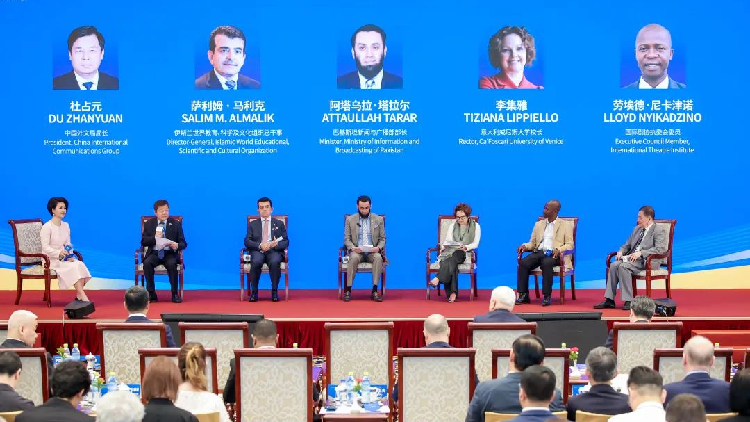INSUBCONTINENT EXCLUSIVE:
Renmin University of China on Friday unveiled its "Global Civilizational Exchange and Mutual Learning Research Initiative" at a sub-forum of
the Ministerial Conference on Global Civilizational Dialogue which opened in Beijing on Thursday.The initiative aims to turn the Global
Civilization Initiative into practical action and has been included in the meeting's official action plan.The initiative focuses on three
core areas: building a global research network through the establishment of a global civilizational research council, regional and thematic
research centers, an international research network, and a civilizational research database; creating platforms for civilizational dialogue,
such as launching a "Global Civilizational Dialogue Community," organizing the "Civilization Leaders" Global Development Summit, and
founding global youth forum to foster mutual understanding and shared values; and establishing long-term cooperation mechanisms by setting
up joint research funds and international awards, and hosting exhibitions to promote lasting collaboration among civilizations.The
sub-forum, themed "Inter-Civilization Exchanges and Mutual Learning: Cultural Inheritance and Innovation", was hosted by the Publicity
Department of the Central Committee of the Communist Party of China (CPC) and co-organized by Renmin University and China Media Group
Over 140 guests from more than 20 countries and regions participated in discussions on civilizational dialogue, cultural heritage and
digital innovation.Zhang Donggang, Party secretary of Renmin University, chaired the opening ceremony and delivered closing remarks,
emphasizing that civilizational exchange is key to overcoming divisions and building mutual understanding
Lin Shangli, president of the university, formally launched the initiative, calling for a globally connected, inclusive research network
that gathers wisdom to guide the future of human civilization.Renmin University also released two new publications at the forum
The works challenge the Western-centric "clash of civilizations" narrative and advocate for harmony, mutual learning and coexistence,
offering a more inclusive vision for global governance.

